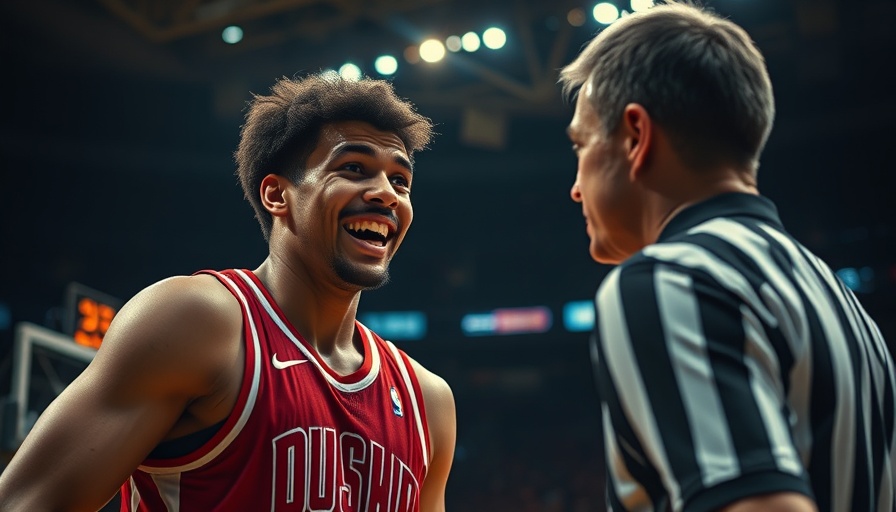
The Evolving Game: Why Everyone's Improving Except Officials
In the whirlwind world of sports, fans are witnessing a fascinating trend: players are evolving at a breakneck pace, honing their skills, and elevating each season’s competition. Yet, a curious phenomena stands out in sharp relief: officials appear to be stagnating. This embodies a crucial conversation recently sparked by basketball coach Stephanie White, whose remarks remind us that in sports, inconsistency in officiating can significantly impact the integrity of the game.
In 'Everybody's getting better, except the officials' 😳 - Stephanie White, the discussion dives into the challenges of officiating in sports, exploring key insights that sparked deeper analysis on our end.
Understanding the Dilemma: What’s Going Wrong?
Despite advances in training and technology, the officiating in various sports is often seen as lagging. Technology such as instant replay systems and analytics has revolutionized how games are analyzed and played. Yet, inconsistencies still abound. Miscommunications and questionable calls seem to persist, frustrating players and fans alike. This presents a critical question for sports governing bodies: how can we bring officiating up to the level of the players who continuously push boundaries?
Parallels in Other Sports
Stephanie White's comments resonate beyond basketball, clearly visible within the NFL, MLB, and NHL. For instance, during the 2023 NFL season, many fans took to social media expressing their confusion over dubious pass interference calls. Meanwhile, MLB's umpires often face scrutiny for missed calls that influence playoff games. In NHL playoffs, overturned goals due to marginal infractions continue to spark heated debates. With players and strategies adapting rapidly, how can we ensure officiating evolves accordingly?
Echoes of Change: The Future of Officiating
The growing call for improved officiating is not without its solutions. Technologies like VAR in soccer set a precedent for enhanced accuracy in officiating. Initiatives such as adopting AI tools for reviewing crucial decisions could pave the way for a new standard. Additionally, training programs focusing on evolving strategies can bridge the gap between officiating and players’ ingenuity. Imagine the possibilities if officials were as dynamic and equipped as the athletes themselves.
Societal Reflections: The Impact of Officiating
The issue of officiating transcends sports; it embodies broader societal principles of accountability, fairness, and transparency. With the continued evolution of athletes, fans expect the same commitment from officials. By examining this conundrum, we not only engage in sports conversations but also spark discussions on governance and ethical standards in teams, organizations, and even our communities.
Calls to Action: What Can Fans Do?
As fans, engagement in this ongoing conversation about officiating is crucial. Advocacy for improved officiating standards through feedback to league organizations and utilizing social media platforms for constructive dialog is vital. Moreover, exploring and supporting accountability measures—like those implemented in some sports organizations—is a step toward pushing for change. It contributes to fostering a culture of fairness that fans demand and deserve.
Conclusion: The Need for a Balanced Game
In the end, as the conversation initiated by Stephanie White highlights, the evolution of sports gives rise to new expectations. The challenge rests on all stakeholders—players, officials, organizations, and fans—to ensure the officiating aspect does not fall behind the astonishing developments nurtured by our athletes. Without progress on all fronts, the game's integrity is jeopardized. Therefore, it’s essential for fans to voice their opinions and advocate for change, fostering an environment where officiating can truly rise to meet the players’ and fans’ incredible expectations.
 Add Element
Add Element  Add Row
Add Row 



Write A Comment